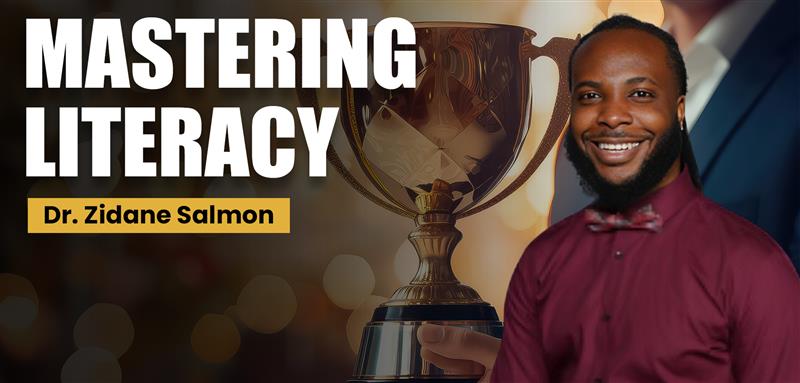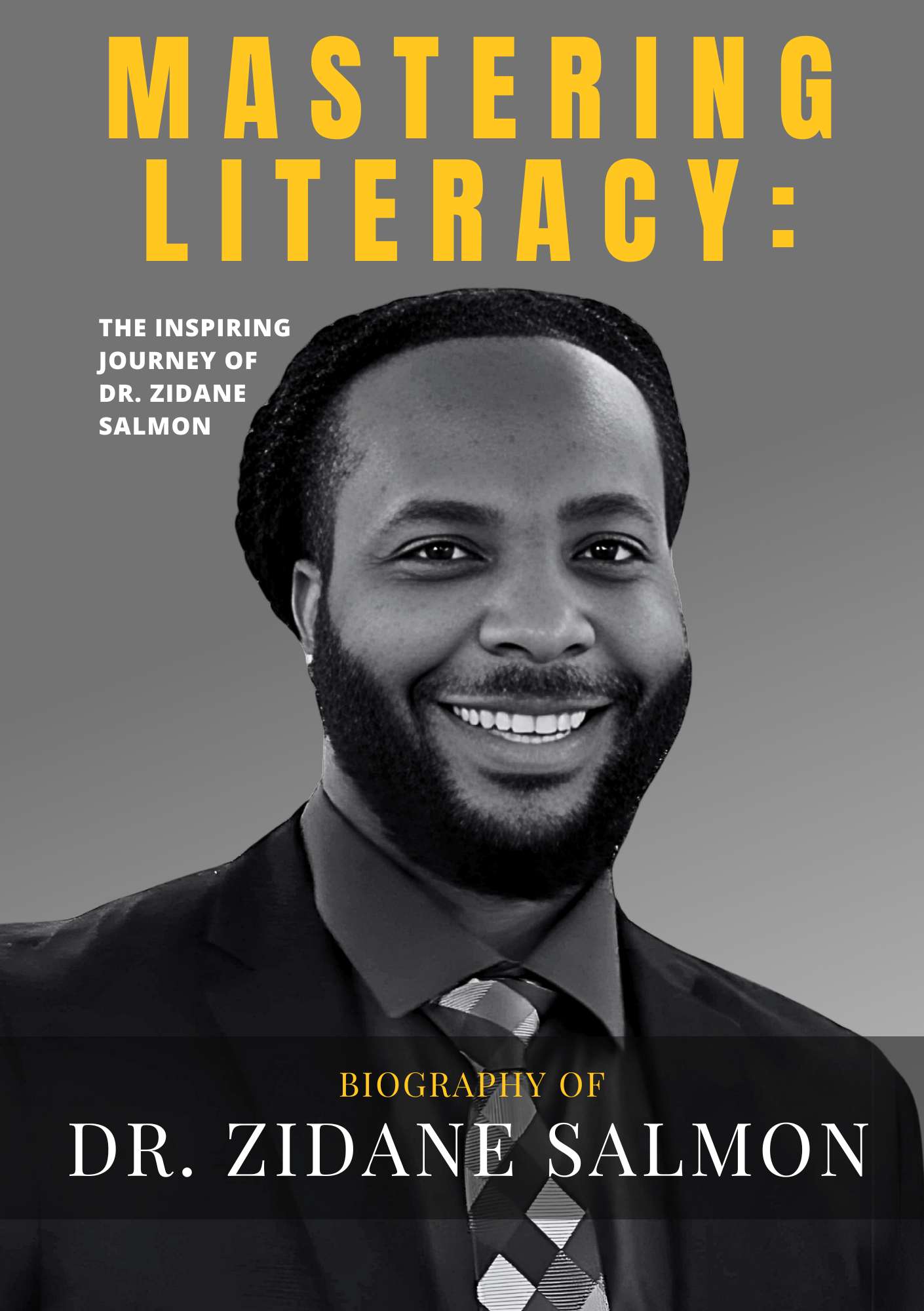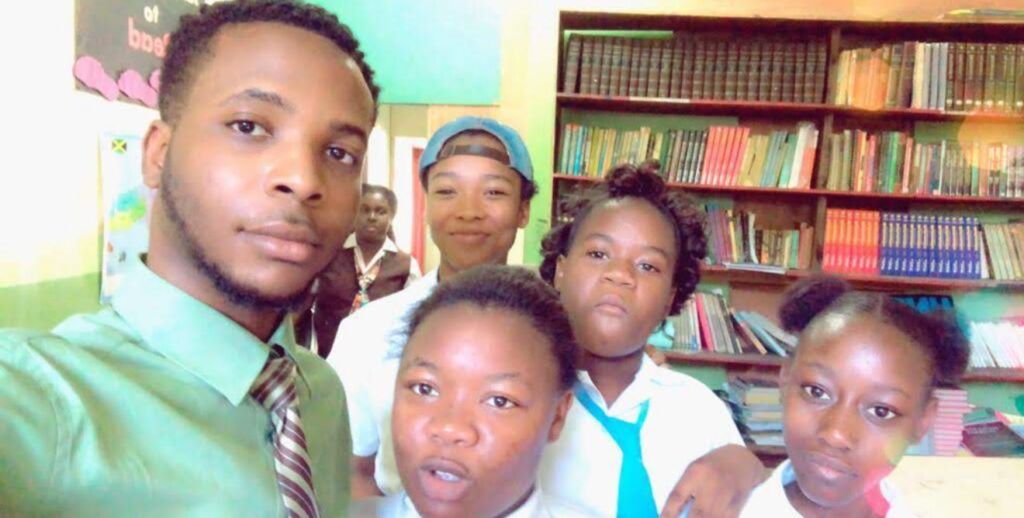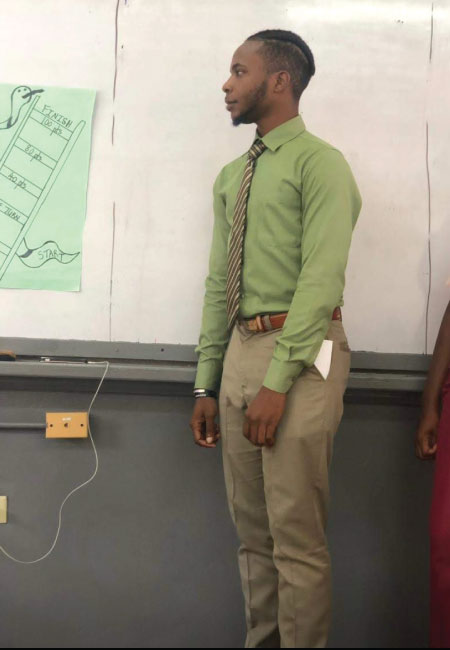

"Every challenge faced is a lesson, and every lesson learned is a step toward change.”
Introduction
Dr. Zidane Salmon’s journey from humble beginnings in Kingston, Jamaica, to global educational advocate is a testament to the power of education, resilience, and service.
Raised by a single mother battling health issues, Dr. Zidane faced financial hardship and personal loss from a young age. Despite these challenges, his mother’s belief that education could change lives became his driving force. When she passed away during his university years, Dr. Zidane made a decision that would define his future to use his education to uplift others.
At The Mico University College, he overcame financial burdens and personal grief to earn a Bachelor of Education specializing in Language and Literacy. His experiences fueled a lifelong commitment to advocating for educational equity, ensuring that no child would face the barriers he once did.
Today, Dr. Zidane is an award-winning educator and advocate leading initiatives that focus on youth empowerment, mental health, and educational equity. His work reaches from local classrooms to global platforms, where his voice champions the belief that every child deserves a fair chance to succeed.
This biography tells the inspiring story of a man who turned adversity into purpose and whose mission remains clear.
Education can change lives—and everyone deserves that chance.
Phase 1 : Foundations of Resilience (Early Experiences & Obstacles)
“Adversit y introduces a man to himself.” – Albert Einstein

Dr. Zidane Salmon’s early life in Kingston, Jamaica, was shaped by hardship, responsibility, and an unyielding spirit. Raised by his mother and older brother in an environment where financial struggles were a daily reality, Dr. Zidane’s childhood was anything but conventional. With his father absent even before his birth, Dr. Zidane’s mother took on the burden of raising two children alone. Despite the harshness of their circumstances, she instilled in her children the values of education, perseverance, and kindness.
In the heart of Kingston, Dr. Zidane experienced two contrasting worlds the privileged areas and the more challenging, under resourced neighborhoods. His family resided in the latter, where survival often took precedence over formal education. With school located far from home and limited financial resources, Dr. Zidane frequently missed classes. Yet, the absence of a traditional education did not deter his intellectual curiosity. His mother, determined to provide him with a foundation of learning, improvised lessons at home using any available books. This early exposure to self-directed learning nurtured his academic curiosity and love for the written word.
Life became even more challenging as Dr. Zidane approached his teenage years. His mother’s health deteriorated, forcing his older brother to leave school and assume financial responsibility for the family. Dr. Zidane, in turn, took on the role of primary caregiver at home. During the day, he tended to household duties and his mother’s medical needs. By night, he returned to his foster family’s home for rest—a balance that grew increasingly difficult to sustain. Despite these hardships, Dr. Zidane prioritized his mother and refused to let his circumstances define his future.
One of the most pivotal moments of Dr. Zidane’s adolescence came when he faced a severe medical condition that caused his spine to compress his lungs. Surgery became a necessity, though financial constraints threatened his access to care. Miraculously, he was fast-tracked for surgery, an event that marked a turning point in his life. Even while recovering from the operation, Dr. Zidane remained steadfast in his commitment to education, knowing it was his best chance at a better future.
When his mother passed away while he was in university, Dr. Zidane faced yet another profound loss. This tragedy left him and his brother without parental support, forcing them to rely solely on each other. With limited resources and mounting pressure, Dr. Zidane continued to fight for his education, motivated by his mother’s dream for him to succeed. This period of grief and hardship tested his resolve, yet it also forged his resilience and sense of purpose.
Phase 2 : Quest for Knowledge (Educational Path & Academic Experiences)
“Education is the most powerful weapon which you can use to change the world.” – Nelson Mandela
Driven by a relentless desire to uplift himself and others through education, Dr. Zidane Salmon’s journey led him to The Mico University College—a place where his intellectual curiosity transformed into a lifelong mission. Enrolling in the Bachelor of Education program specializing in Language and Literacy was not merely an academic choice; it was a declaration of his commitment to using education as a tool for empowerment.

His transition to university life was not without challenges. Financial hardships persisted, and Dr. Zidane often relied on the kindness of family friends and his brother’s unwavering dedication to support his education. Despite these obstacles, Dr. Zidane immersed himself in academic life. His days were filled with lectures, research, and fieldwork, while his nights were spent caring for his mother and balancing familial responsibilities. This duality of duty and ambition only strengthened his resolve.
Dr. Zidane’s perseverance bore fruit when he secured two scholarships during his second year, easing the financial burden and allowing him to focus fully on his studies. With these resources, he thrived academically and distinguished himself through his commitment to literacy advocacy. His experiences taught him that education was not just a personal endeavor—it was a communal responsibility, one that had the power to uplift entire communities.
Throughout his time at Mico University, Zidane engaged deeply in volunteerism and community outreach. He became a prominent figure in youth advocacy networks, championing causes related to educational equity and cultural literacy. Recognizing the gaps in educational access, especially for underprivileged youth, Zidane devoted countless hours to mentorship programs to support students who faced challenges like those he had experienced.
Phase 3 : Accepting Leadership (Initial Career & Teaching Background)
“Leadership is not about a title or a designation. It’s about impact, influence, and inspiration.” – Robin Sharma

Dr. Zidane Salmon did not merely step into the field of education; he transformed it. His journey was never about following a path already paved it was about creating new roads, breaking barriers, and setting the stage for others to rise. For him, leadership was not a position, but a responsibility a responsibility to uplift, inspire, and change lives. From his earliest days as an educator, Dr. Zidane understood that teaching went beyond textbooks and lesson plans. Education, to him, was a force of empowerment, a way to ignite the minds of the next generation and arm them with the tools to dream bigger, reach higher, and break cycles of limitation. His classrooms were not just places of learning; they were arenas of transformation.
Dr. Zidane’s teaching career took a defining turn when he joined The Grange School as a Teacher of English. From the moment he stepped into the institution, he saw not just students, but untapped potential, waiting to be unlocked. Where others saw limitations, he saw opportunities; where others saw statistics, he saw stories—stories of resilience, ambition, and unspoken dreams.
Determined to create a space where students could find and use their voices, Dr. Zidane worked alongside school leadership on cultural initiatives to promote inclusivity. Through collaborative projects, he helped foster an environment where students could express their unique identities, strengthening their sense of belonging and self-confidence.
Beyond student engagement, Dr. Zidane recognized the need for teacher development and knowledge-sharing. Under the guidance of his coach, he recorded his own teaching sessions to reflect on and refine his methods.
This process became a catalyst for his involvement in Continuing Professional Development (CPD) sessions, where he shared best practices on embedding literacy strategies in the classroom. Rather than leading whole-school CPD, Dr. Zidane took the opportunity to demonstrate how other educators could integrate literacy techniques effectively, using real-life examples from his own lessons.
Dr. Zidane understood the importance of ensuring that every student, regardless of background, felt valued. He became actively involved in Culture Week, an initiative aimed at celebrating diversity through interactive workshops, storytelling, and artistic expression. His contributions helped students embrace and share their heritage, strengthening cultural awareness across the school community. One of the highlights of this initiative was “Our Stories, Our Voices,” a segment of Culture Week where students showcased their experiences through spoken word, music, and visual art. This platform encouraged students to embrace their identities while building empathy and understanding among their peers.
Dr. Zidane’s leadership extended beyond student development to mentoring fellow teachers—particularly Jamaican educators transitioning to the British education system. He provided guidance on lesson planning, adapting to new curricula, and preparing for job interviews, easing the challenges of relocation. While his mentorship was not part of a formal leadership role, his impact was significant, supporting immigrant teachers as they navigated their new professional environment.
As a young educator with innovative ideas, Dr. Zidane often faced resistance when introducing new methods. Some colleagues were hesitant to embrace change, and integrating literacy strategies across disciplines required persistence. However, Dr. Zidane’s results spoke for themselves—his students showed improved engagement and comprehension, reinforcing the importance of embedding literacy across subjects.